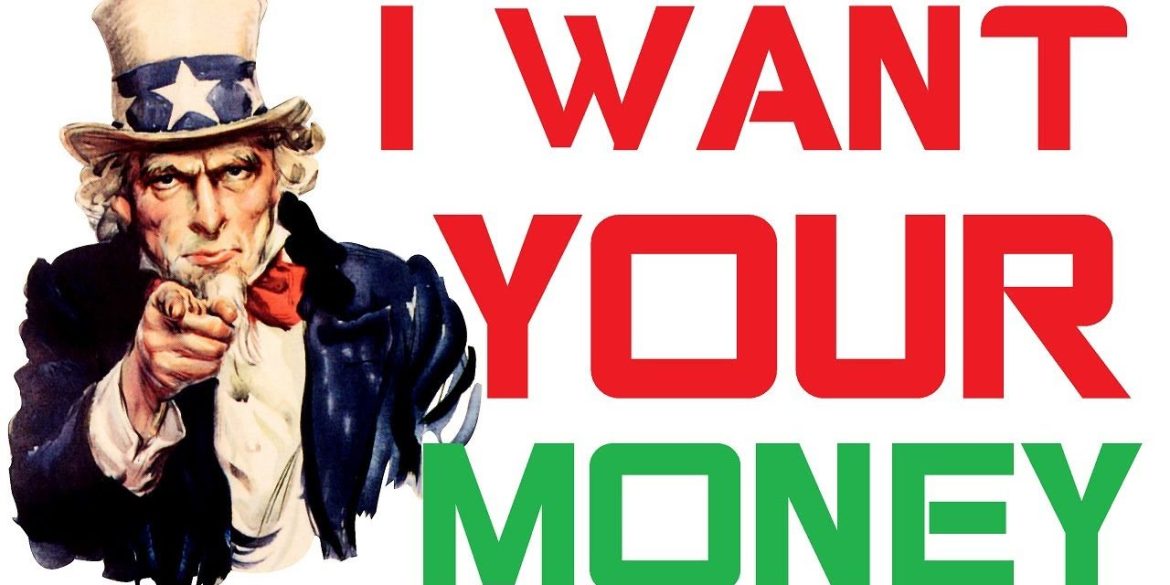In an age where every penny counts and public trust in governance teeters on the edge, the staggering revelation that 17 federal agencies have collectively hemorrhaged an estimated $247 billion in improper payments in 2022 alone has sent shockwaves through the American populace. This eye-watering sum, breaking down to an average of $20.5 billion of waste per month, or approximately $683 million per day, according to an Open the Books report, presents a compelling case for a comprehensive audit of the U.S. government by a legitimate third party.
A Call for Accountability
The notion of withholding taxes until the government submits itself to an external audit isn’t just a fiscal fantasy but a clarion call for accountability and transparency in an era marked by financial missteps. Such a radical move begs the question: Could this be the catalyst needed to overhaul how taxpayer dollars are managed, ensuring they serve the public interest rather than disappearing into the bureaucratic abyss?
The Financial Fiasco Unraveled
The magnitude of the misallocated funds lays bare a systemic issue within the corridors of power, where the left hand seems unaware of what the right hand is squandering. This financial fiasco underlines not only a gross mismanagement of resources but also highlights the critical need for a rigorous audit mechanism capable of dissecting the government’s financial affairs, identifying leaks, and proposing sustainable fixes.
The Case for a Third-Party Audit
Entrusting the task of auditing to an independent third party is not merely a procedural necessity but a trust-building measure with the American people. Such an audit could provide an unbiased examination of the government’s financial practices, offering insights that internal reviews might overlook or understate due to institutional bias or political pressure.
The Ripple Effects of Fiscal Prudence
Imagine the possibilities if the billions saved from plugging these financial leaks were redirected towards bolstering healthcare, education, infrastructure, or reducing the national debt. The ripple effects of such fiscal prudence could be monumental, offering a beacon of hope and a roadmap for responsible governance.
A Democratic Dilemma
However, this proposition is not without its controversies. Withholding taxes en masse until an audit is conducted treads a delicate line between civic protest and legal obligations, posing a democratic dilemma that underscores the tension between government accountability and citizen duty.
Bridging the Trust Divide
The push for an external audit transcends fiscal concerns, touching on the broader issue of trust between the government and its citizens. In an era where skepticism towards governmental actions is at an all-time high, an audit could act as a bridge across this trust divide, reaffirming the government’s commitment to transparency and fiscal responsibility.
Navigating Towards a Solution
The road to implementing such an unprecedented audit will be fraught with challenges, from logistical hurdles to political resistance. Yet, the journey towards fiscal accountability and government transparency is a necessary voyage, one that demands collective will, bipartisan support, and a steadfast commitment to the principles of democracy.
The Audit Ultimatum: A Call to Action
As America stands at this fiscal crossroads, the audit ultimatum presents itself not just as a call to action but as a rallying cry for all who envision a government that exemplifies fiscal integrity, transparency, and accountability. The path forward requires courage, collaboration, and a collective resolve to ensure that taxpayer dollars are safeguarded and spent wisely, paving the way for a future marked by financial stability and public trust.
In essence, the push for an external audit of the U.S. government embodies the spirit of American democracy—a relentless quest for a more accountable, transparent, and responsible governance system that truly serves the interests of its people.


1 comment
[…] Source link […]